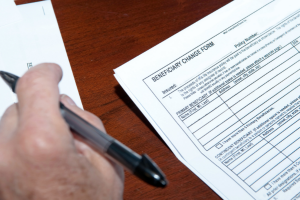
Crucial Estate Planning Steps
Updated: October 6, 2023
 If your estate plan is not done properly, there may be consequences that can’t be corrected or easily fixed. Aside from not having an estate plan at all, there are many other basic errors you can make when planning and creating one:
If your estate plan is not done properly, there may be consequences that can’t be corrected or easily fixed. Aside from not having an estate plan at all, there are many other basic errors you can make when planning and creating one:
- Not taking account of all your assets, not knowing the federal, state, and local tax and property laws, and all your estate planning needs and options;
- Poor decisions when setting up your estate plan, including choosing the wrong executor or trustee and not considering the needs of each beneficiary individually;
- Not keeping documents up to date with all the changes in your family, residence (especially if moving to another state), estate, and any state or federal laws concerning your estate;
- Not planning for the possibility of illness, disability, or other major life change;
- Not making sure all of your documents are properly worded, signed and notarized;
- Not consulting and/or informing all those involved, especially beneficiaries; and/or
- Not consulting or hiring an estate planning professional to assist you.
There are a number of crucial steps you can take to prevent costly problems with your estate plan.
Know All Your Options
Estate plans are highly individualized and complicated. They cannot be done properly if you don’t consider your situation, inventory all of your assets, and research all of the options. This is true even if you hire a professional, since they need to know everything to make proper decisions and may not discuss all the options with you.
Consider How You Want to Divide Your Estate
While you may feel obligated to divide the estate equally among your beneficiaries, for many reasons you may want to consider other distribution options. As a parent you know your children have different needs — they aren’t equally responsible, don’t have equal prospects or talents, and may have given or received different levels of help from you over the years.
 If you choose to divide it unequally, do it in a way that is acceptable to your heirs.
If you choose to divide it unequally, do it in a way that is acceptable to your heirs.
A fair distribution focuses on providing equal opportunities for each heir, even though the amount is unequal.
- There are numerous examples of this, such as paying for or helping to pay for college tuition for four years, a down payment on a first home, the cost of a business start-up, or medical care and childcare. This could lead to an even more unequal distribution — if you have already provided financial help to one child before your death, such as full education, it would not be unfair to only provide funds for this to the child who has not gone to college yet.
- A fair distribution can also involve leaving possessions to the heir who would most appreciate it, barring objections from other heirs.
An equitable distribution takes into account the beneficiaries involvement in the asset or what the asset is used for.
- For instance, a family member who is taking care of a disabled or elderly family member would require additional assets to continue that care, especially if there was no special needs trust to rely on.
- Other examples include leaving the business to the person who ran it with you, giving the car or vacation home to the heir who took care of it, or made some other extra contribution to merit a higher stake in the asset.
Your Plan Needs to Be Appropriate for Your State
 Your state will have its own inheritance, digital estate, estate and income tax laws, probate process, and rules for wills and trusts. You, or your estate planner, must know these details and make your estate plan reflect them.
Your state will have its own inheritance, digital estate, estate and income tax laws, probate process, and rules for wills and trusts. You, or your estate planner, must know these details and make your estate plan reflect them.
If you are married, it is crucial to know if you live in a common law property state or a community property state, other state rules about joint ownership, and allowable transfer or payable on death options.
Your state may or may not have inheritance taxes and/or their own estate tax.
Consult a Professional
You are always better off going to an experienced estate planning lawyer or financial professional. They are more likely to:
- Be aware of the nuances and details that will help you get it right;
- Know the correct legal language to assure the plan is valid;
- Understand and help you reduce the overall tax implications of your plan; and/or
- Keep track of new laws and regulations.
Despite the fees, the money that can be saved in the long run is usually worth the expense.
A Residuary Clause is Needed

In addition to the inheritance of specific beneficiaries, your will and/or trust needs a residuary clause to account for any assets you may have forgotten or not added to the estate plan yet.
- It will account for any assets that remain due to the death of any beneficiary.
- This is usually done with a pour over will.
Plan for the Unexpected
No one expects to develop a long-term disability or a terminal illness, but your estate plan should account for it.
- Make sure you are specific about who would handle your personal and financial affairs, whether a power of attorney or trustee.
- You should include your instructions regarding the management of your finances, raising of your children, etc.
- Choose back-up trustees or executors in case your primary agent becomes unavailable or unable to perform their duties.
- Consider a Diminishing Capacity Letter that gives any professional consultant permission to call specific trusted individuals (like your powers of attorney and/or a family member), if they have noticed a decline in your physical, cognitive, or psychological capacity.
Account for unexpected deaths by designating contingent beneficiaries and back-up trustees or executors in case your primary choices die either before you or soon after.
Make Decisions Carefully
There are many components to an estate plan and it’s important to carefully consider each one. Most estate planning tools are pretty flexible while you are alive, however there are many things that are difficult to change and even a few that can’t be at all, such as an irrevocable trust.
Most estate plans become fixed after your death, unless clauses are added to allow trustees or executors leeway to make any necessary changes resulting from evolving circumstances.

Beneficiaries and Co-owners
There are many considerations to make when you want to get your assets to the correct person, in the correct amount, in the most efficient and cost effective means possible, and in a way that is best for them.
The estate plan will be different depending on if they are your spouse, are a minor child, have trouble managing money, owe a lot of debt, are planning to go to college or get married, are married and have children, etc.
While it may be easy changing beneficiaries on a will or revocable living trust from a legal point of view, the emotional toll may be quite high.
Beneficiaries and co-owners will age over time and you may need to account for this. For example, if you want your:
- Minor child to get your savings account, you will have to arrange for it to be set aside until they come of age; or
- Trustee to manage your estate only until they retire, be specific in the documentation.
What is best for your beneficiaries could involve avoiding the probate process, preventing other family from contesting the inheritance, and choosing the correct tool for the asset, such as:
- A transfer-on-death account rather than your will for your retirement plan assets;
- An AB trust with your spouse rather than a joint ownership;
- A discretionary trust for a child with a gambling problem; and/or
- A notarized statement in your estate plan confirming your competence and/or specific statement about why someone is being left out of your will.
Your Agent — Personal Representative, Executor or Trustee
 It is most common to name a family member or trusted friend as your agent, but it may be best in some situations to choose a more objective third party.
It is most common to name a family member or trusted friend as your agent, but it may be best in some situations to choose a more objective third party.
While a high level of trust is the most crucial part of any trustee, there are other things to consider before finalizing your choice.
- If they have any experience with financial matters and an understanding of other estate management issues.
- If it is possible that if your agent will be in conflict with your family they will be less effective.
- The amount of responsibility is enormous and they need to be reliable and able to handle it.
- The duration of your agent’s responsibility.
- While an executor’s role in a simple estate may only be a few months, a probate process may take years with a complicated or contested estate.
- A trustee’s role could be many years, even a lifetime, and their abilities may wane over time.
- A professional trustee may end their professional relationship with the beneficiaries, such as when they retire or move.
- A corporation may be the safest option, but even they could withdraw if they go out of business or merge with or are acquired by another company.
Your Instructions for Your Estate
 Assets in your will are transferred according to your wishes and you can include any level of detail in your instructions. While you can change these instructions while you are alive, they are fixed after your death. It may be important to consider the long-term effect of inheritance on your beneficiary and plan accordingly.
Assets in your will are transferred according to your wishes and you can include any level of detail in your instructions. While you can change these instructions while you are alive, they are fixed after your death. It may be important to consider the long-term effect of inheritance on your beneficiary and plan accordingly.
Even when you place your trust’s assets in the control of a trustee, you can still give explicit instructions about how the trustee manages them. Since a trust is a dynamic financial tool, providing details is a more difficult process and requires more thought and professional help.
Change with the Times
Once you have an effective estate plan, it is important to realize that this may only be effective for a short period of time. An estate plan is a dynamic financial tool and evolves constantly, for many reasons.

To maintain an effective estate plan you must be aware of any and all changes that affect your estate and make any updates or changes to your plan to account for them. However, no changes can be made in an irrevocable trust.
You should review your estate planning documents and gifting strategies regularly and go over them with your attorney and/or financial professional to make sure everything is still appropriate to your goals.
The changes to your estate that will require immediate attention will generally fall into three categories:
- Changes in estate planning and tax laws;
- Additions to or losses from your estate; and
- Changes in the people involved in your estate, such as by birth, death, marriage, or divorce.
People Change
In addition to unexpected deaths and disability, as you, your children, and other beneficiaries age or change over time it may have an effect on your estate plan.
Here are a few things to consider.
- Major changes or updates may be required in your estate plan when a child becomes an adult; they no longer need a guardian or conservator and could become a trustee and/or have power of attorney.
- You will have to update your will or trust if you want a different distribution of income to your children if one becomes more successful.
- You may no longer trust or have confidence in your chosen trustee, executor, or children’s guardian.
- If you change your mind on other issues related to your beneficiaries, your estate plan will need to be updated
Circumstances Change
 There will likely be other major life events such as birth, marriage, and divorce that could result in a major change or update of the beneficiaries and distribution of your estate. Some of these events may include change in relationships.
There will likely be other major life events such as birth, marriage, and divorce that could result in a major change or update of the beneficiaries and distribution of your estate. Some of these events may include change in relationships.
- Make sure all changes are made equally across all of your assets.
- Any discrepancies will complicate things and may require legal involvement if one type of plan does not clearly overrule another. For example, the beneficiary of a payable on death account will get the settlement regardless of what you stated in your will or trust.
If handled well, your assets will increase in value over time as they grow and are added to. They may also decrease.
- Changes in the value of assets and any other changes in your finances may affect your estate plan if they result in a different circumstance than when it was created.
- For example, your net worth may become more than your state’s estate tax limit, prompting you to begin giving yearly gifts to family, making charitable gifts or forming a charitable trust to get your taxable estate below the limit. Charitable gifts can also be deducted from your income taxes.
A job change can result in the need for an update. For example, they may have a better retirement plan than your existing one which may require a transfer into your new employer’s plan.
Laws Change
 It is crucial to keep up with all applicable laws after your estate plan is created and research the state laws after moving to a different state, or before acquiring assets in or moving assets to a state you are not currently living in.
It is crucial to keep up with all applicable laws after your estate plan is created and research the state laws after moving to a different state, or before acquiring assets in or moving assets to a state you are not currently living in.
State laws are highly variable and you have to be aware of them.
- In most cases when all states have a law or regulation, there are differences among them such as dollar amounts or who the law applies to.
- There are many types of estate planning tools that are only available in certain states, such as tenancy by the entirety and common property.
Federal and state estate planning laws and the tax code are constantly changing.
- Changes in laws often have some effect on your estate, but do not always result in having to adjust your estate plan accordingly.
- Your estate planning professional should be able to keep up with any changes and advise you accordingly. It may be beneficial to stay personally informed as well.
Change May be Subtle
Even if you don’t think there are any changes, you should review and consider revisiting your estate plan every 3 to 5 years.
No Job is Complete until the Paperwork is Done
Like anything to do with estate planning, you have to provide the correct documentation with the appropriate legal language for any changes. You may need to have some of them witnessed and/or notarized before they are valid.
Communication is Important
 An often overlooked part of estate planning is communicating with all the people named in your estate plan. Talking with them can ensure a smooth transition during the difficult period after your death, while surprises can create a lot of problems.
An often overlooked part of estate planning is communicating with all the people named in your estate plan. Talking with them can ensure a smooth transition during the difficult period after your death, while surprises can create a lot of problems.
The two most important things to do are providing your agent (executor, trustee, and/or guardian) with all the details necessary to understand the level of their responsibility and discussing your plans with your family.
Informing Your Agent
Your agent should know exactly what you are asking and expecting from them. This will allow them to both consider whether they will be able to fulfill the role and to carry it out according to your wishes.
Aside from preventing the agent from coming across unexpected duties, you can adapt the agent’s role to their preferences such as whether or not they want the power to override your instructions on how to handle and distribute your assets if a reason to do so develops.
Discuss Your Plans with Family
 Communicating your wishes to your family and beneficiaries has many benefits.
Communicating your wishes to your family and beneficiaries has many benefits.
- Sharing your estate plan will ensure your family understands what your wishes are and, in some cases, your intentions and reasoning.
- Knowing what you plan to leave to them when you die can help them plan for it.
- Having a two-way discussion can help build relationships and avoid family discord that might reduce the likelihood of litigation contesting your estate plan.
- Your family may be able to help you make these decisions. For example, one child may recognize the need for another to get more of your assets and encourage you to do so.
- 5 steps to create an estate plan. Fidelity website. Updated: November 2022. Accessed: October 6, 2023.
- 10 estate plan pitfalls to avoid. Fidelity website. Updated: May 2023. Accessed: October 6, 2023.
- Bellucci Markos V. Steps To Creating a Good Estate Plan. the balance website. Updated: July 21, 2022. Accessed: October 6, 2023.
- Bieber C. 5 Most Common Estate Planning Mistakes, and How to Avoid Them. The Motley Fool website. Posted: August 3, 2023. Accessed: October 6, 2023.
- Campo P. What are the Basics of Estate Planning? Estate Preservation Group website. Posted: May 30, 2022. Accessed: October 6, 2023.
- Complete Guide to Estate Planning. Law Depot website. Updated: July 18, 2023. Accessed: October 6, 2023.
- Estate Planning Checklist: 10 Steps to Follow. MetLife website. Updated: September 13, 2022. Accessed: October 6, 2023.
- Grant K. Got a will? Here are 11 more end-of-life documents you may need. CNBC website. Updated: November 15, 2017. Accessed: October 6, 2023.
- How You Can Avoid the Most Common Estate Planning Mistakes. Trust & Will website. Accessed: October 6, 2023.
- Jackson L. Estate Planning Guide and Checklist for 2023. National Council on Aging website. Updated: April 21, 2023. Accessed: October 6, 2023.
- Kaminsky M. 11 simple steps to an estate plan. legalzoom website. Updated: September 1, 2023. Accessed: October 6, 2023.
- Kaminsky M. Estate Planning Dos and Don’ts. legalzoom website. Updated: September 1, 2023. Accessed: October 6, 2023.
- Pritchard T. What Documents Are Needed for Estate Planning? The balance website. Updated: June 15, 2022. Accessed: October 6, 2023.
- Segal T. Estate Planning: 16 Things to Do Before You Die. Investopedia website. Updated: July 10, 2023. Accessed: October 6, 2023.
- Scott A. 10 Common Estate Planning Mistakes to Avoid. FindLaw website. Updated: July 19, 2023. Accessed: October 6, 2023.
- Silva D. Your complete guide to estate planning. Policygenius website. Updated: January 13, 2023. Accessed: October 6, 2023.
- Thomas-Walters. What Are The Steps To Creating A Strong Estate Plan? Posted: March 1, 2022. Accessed: October 6, 2023.
